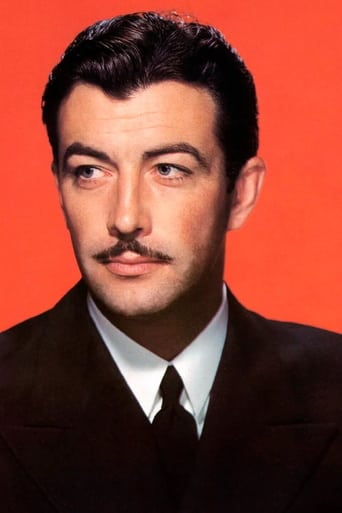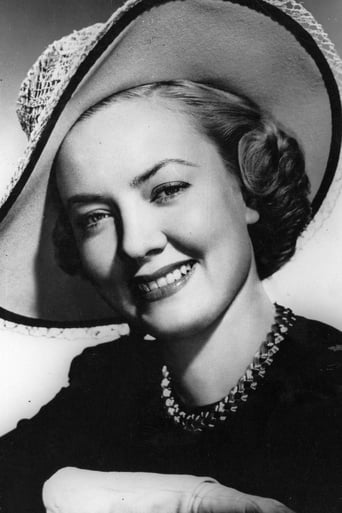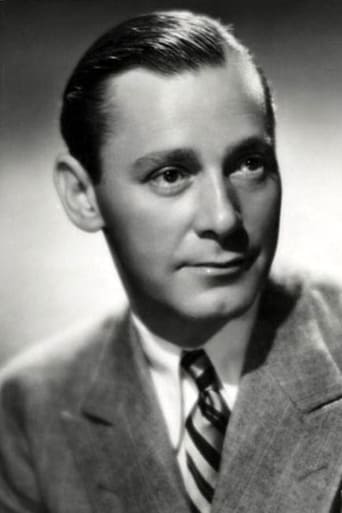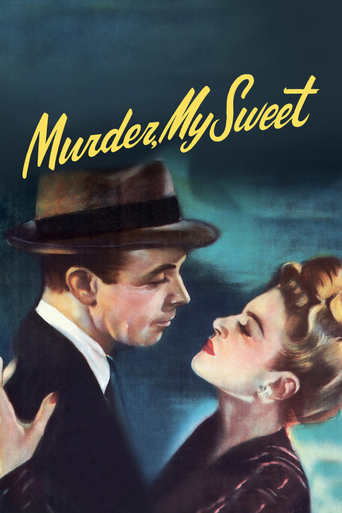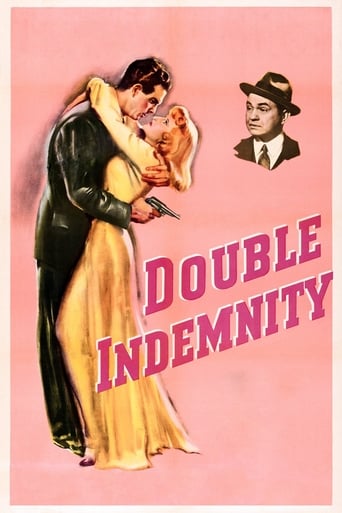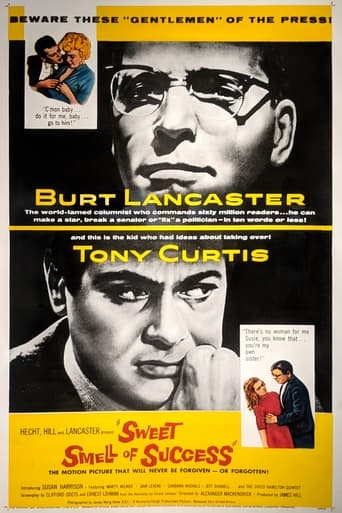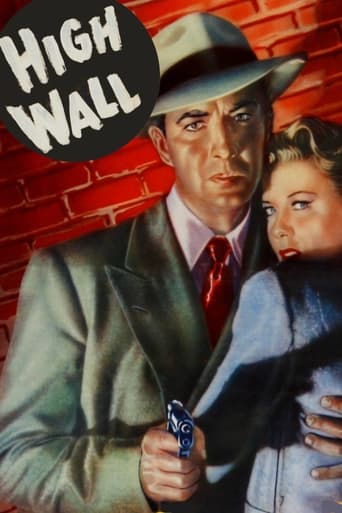
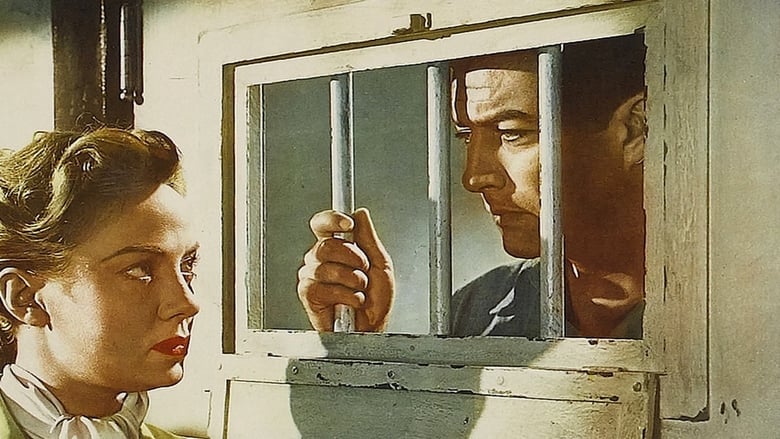
High Wall (1947)
Steven Kenet, suffering from a recurring brain injury, appears to have strangled his wife. Having confessed, he's committed to an understaffed county asylum full of pathetic inmates. There, Dr. Ann Lorrison is initially skeptical about Kenet's story and reluctance to undergo treatment. But against her better judgement, she begins to doubt his guilt.
Watch Trailer
Cast
Similar titles
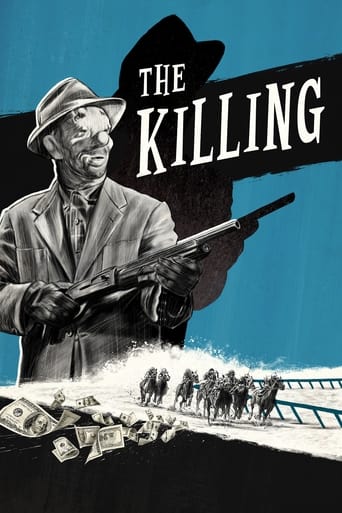

Reviews
Great Film overall
Tells a fascinating and unsettling true story, and does so well, without pretending to have all the answers.
Story: It's very simple but honestly that is fine.
A terrific literary drama and character piece that shows how the process of creating art can be seen differently by those doing it and those looking at it from the outside.
This is a very interesting film, although it as one problem, Is it film noir? I'm not totally sure. To me it's just more of a mystery.Let's begin with the problem. Audrey Totter does fairly well here, but to there is a problem with her character. Would a female doctor in a mental hospital be that friendly and casual with a patient...particularly back in the late 1940s? I think not, although it's almost necessary to make the script work.This was a good film for Robert Taylor. Certainly different than his typical role. Here he plays a returning vet who discovers his wife apparently cheating on him. He strangles her...or does he? He is arrested and due to PTSD (of course that was not a recognized condition back then) placed in a mental institution for evaluation.Who might an alternate suspect be? Perhaps Herbert Marshall, the probable lover. A different role for Marshall, as well. I'm quite a fan of Marshall's, and this is not one of my favorite Marshall roles.I wasn't particularly pleased with how quickly the ending of the movie took place. However, this is a fine film and well worth watching. Recommended.
High Wall is directed by Curtis Bernhardt and adapted to screenplay by Sydney Boehm and Lester Cole from the play by Alan R. Clark and Bradbury Foote. It stars Robert Taylor, Audrey Totter, Herbert Marshall, Dorothy Patrick and H.B. Warner. Music is by Bronislau Kaper and cinematography by Paul Vogel.Suffering from a brain injury sustained during the war, Steven Kenet (Taylor) is further rocked by the realisation that he may have strangled his wife during one of his blackout episodes. Committed to a county asylum, Steven responds to treatment by Dr. Ann Lorrison (Totter) and comes to believe he just might be innocent of his wife's murder. But can he convince the authorities? Can he in fact get out of the asylum to find proof?By 1947 film noir had firmly encompassed the plot strand involving returning veterans from the war. Plot would find them struggling to readjust into society, they would be battle scarred, emotionally torn or suffering some form of injury, such as a popular favourite of film makers of the time, the amnesia sufferer. High Wall is one of the better pictures from the original film noir cycle to deal with this premise. Where except for a daft method used to bring the story to its conclusion, it's a well thought out and intelligent picture.The pairing of Taylor and Totter is one of the film's strengths, they are helped no end by having parts that requires them to veer away from roles that they were accustomed to. Bernhardt and Vogel dress the picture up superbly, the camera glides eerily around the asylum, throwing impressive shadows across the drama, and the camera technique used for Kenet's flashback sequences proves mood magnificent. Out of the asylum the visuals still remain beautiful whilst still exuding a bleakness befitting the unfolding story, with rain drenched streets the order of the night. While Kaper drifts a suitably haunting musical score across proceedings.It's unhurried and cares about attention to details, and even though some of the ethics involved in story are dubious, this is a smart entry in the psychological film noir canon. 7.5/10
**SPOILERS*** Robert Taylor as brain damaged ex bomber,in WWII, and cargo, in peacetime, pilot Steven Kenet is found with his wife Helen, Dorothy Patrick, at the bottom of a gully after he ran his car off the road in an attempt to kill himself. As for Helen she was found with her neck broken and was dead before the car hit the ground! With Kenet's memory of what happened the hours up to his wife's death gone the local D.A can't indite him in her murder. In that he has to prove that if in fact Kenet indeed murdered Helen he in having a server blood clot in his brain has no recollection of doing her in.The movie then back tracks in trying to find out what exactly happened between Kenet and his wife up until the time she was murdered! And does it with the help of Kenet's court appointed psychiatrist Dr. Ann Lorrison, Audrey Totter, who unknown to him is looking after his 10 year old son Dickie, Robert Hyatt,at her aunt's house. Locked up in a state mental intuition Kenet's confused mind slowly starts to remember what happened but only in bits and pieces. And that brings into the mix Helen's boss at the book publishing house where she worked Willard I. Whitcombe,Herbert Marshall. It was Whitcombe whom Helen was having a affair with while her husband was away overseas! Like the saying goes when the cat's, Kenet, away the mice, Helen & Whitcombe, will play and that's what was going on between the two when Kenet,with his damaged brain, was flying freight on cargo planes in Burma. It's when Kenet found out that Helen was cheating on him he blew a fuse as well as an electrical circuit or connection in his brain and completely blacked out! That's when he was about to ring Helen's neck!It's when Kenet grudgingly agrees to go under Narcosywtitesis, a fancy word for truth serum, that the truth suddenly comes out in what really happened just before he blacked out with his hands around Helen's neck. It in fact exonerated Kenet in her murder but got the man who murdered her to go right into action. It was Helen's killer who was tipped off and blackmailed by the building janitor Henry Cornner, Vince Barnett, who he also ended up murdering to shut him up! This had him get the very emotional and excited Kenet to trip himself up by going completely bananas at the sate mental intuition! Now a declared and certified, by the hospital staff, homicidal maniac after attacking and almost killing Helen's killer who came to visit and provoke him at the insane asylum Kenet is locked away for life in a padded cell.***SPOILERS*** It's Dr. Lorrison who not only believed that Kenet isn't his wife's killer as well has having fallen in love with the tall dark and handsome schlub who finally sets the record straight in Kenet's direction. But in doing it Dr. Lorrison not only risked her career as a doctor and psychiatrist but her life as well! Fuzzy and confusing movie about the workings of the human mind in the case of Steven Kenet's very mixed up confused as well as damaged up brain. One of the many films released after WWII with so many GI's coming back from the war with severe mental and emotional problems that tried to explain to the audience the theories of mental illness. And for the most part confused its audience even more about this very serious subject then they already were!
The film begins with a woman being murdered and her husband (Robert Taylor) being held for it. However, they can't just put him in jail for this, as he has emotional problems that were exacerbated by a head injury. So instead he's sent to a psychiatric hospital. His therapist is played by Audrey Totter, who like Ingrid Bergman in SPELLBOUND, seems to ignore the boundary between patient and therapist. Eventually she comes to think that he might be innocent and investigates the case to find out who the true killer is--though she never takes the same risk or goes as deeply into the case as Bergman. This new-found belief in Taylor's innocence follows his undergoing "narcosynthesis"--using drugs to facilitate hypnosis--a highly dubious means for getting to the truth (this method has not proved successful over the years). And, it's very dubious in these sort of films that female therapists ALWAYS seem to ignore professional ethics and boundaries with their handsome male patients!This is a very interesting film that, as mentioned above, is very similar to SPELLBOUND. The difference is that this film, though on shaky psychological ground, is still far more possible than SPELLBOUND--which, though a classic, is all psychological mumbo-jumbo. Here, at least, the film has some believability and is quite interesting. Plus, it has a dandy performance by the always understated Herbert Marshall.By the way, how could Robert Taylor's character have gotten brain surgery yet not even have a bandaged head or scars immediately after this?! An odd mistake, surely.
